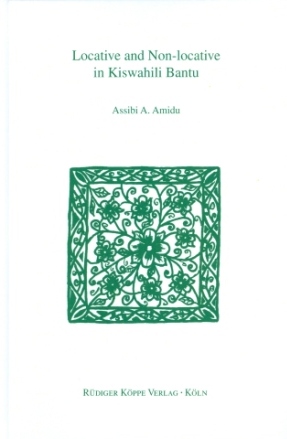


This book challenges the validity of many of the traditional and existing assumptions about locatives in Kiswahili Bantu, such as traditional and modern inversion syntax. Thus, the book demonstrates that there is no syntactic function that non-locative nouns or expressions, their NPs, and their endocentric P-nPs/PPs can perform that locative and locative denoting nouns or expressions, their NPs, and their endocentric P-nPs/PPs do not perform in Pn-Ss or clauses in Kiswahili Bantu. It follows that locative and locative denoting expressions that are endocentric nominal expressions partake in passive syntax (asymmetric inversion syntax) as demoted or promoted NPs. They partake in symmetric inversion syntax (subject-object transposition), ergative intransitive syntax, unergative intransitive syntax, reflexive syntax, and applicative syntax.
Furthermore, the book challenges the theory of prepositional incorporation into verbs as the source of applicative verbs by showing that locative as well as non-locative arguments function as subjects and objects or complements of applicative verbs and are core functions. Endocentric P-nPs/PPs also function as core arguments of applicative and non-applicative verbs in Kiswahili Bantu. Kiswahili Bantu has double and/or multiple locative objects or complements. It also has maximal entity denoting inversion patterns as well as maximal locative inversion patterns. The book demonstrates that if a locative inversion theory is distinct from a non-locative inversion theory in Kiswahili Bantu, then it must be a black swan. This is because no noun is an oblique NP by itself unless all nouns in the noun class system are oblique NPs, too, in clause functions.
Under these links you will find further analyses of Swahili grammar and of transitivity in African languages:
© 2026 by Rüdiger Köppe Verlag – www.koeppe.de